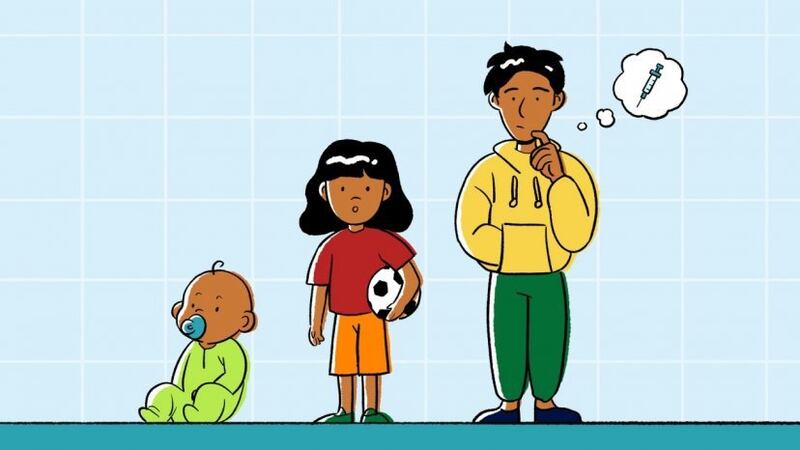More than 458 million people have been fully vaccinated against Covid-19 worldwide, with more than 2 billion doses given to date.
The vast majority are 16 or older. But as more data emerges about Covid-19 vaccine safety in young people, more teenagers will be eligible for vaccination.
Young people under 16 were excluded from vaccination campaigns at first, regardless of the type of vaccine or the country.
That’s because clinical trials used to gather data about the effectiveness and safety of Covid-19 vaccines looked at tens of thousands of adults only, and did not include participants under 16.
This is not unusual, nor is it specific to Covid-19 vaccines.
Vaccines are normally tested first in healthy adults, before trials expand to target groups, such as children, elderly people and pregnant women.
Initial Covid-19 vaccine clinical trials were conducted in people who were most likely to get the virus or be most affected by it: adults.
Now we have data showing the vaccines are very safe and very effective for adults, they are now being thoroughly tested in children and teenagers.
While the number of children involved in clinical trials is still relatively small, Covid-19 vaccines - including the Pfizer jab, used in New Zealand - are also proving safe and effective for young people.
In March, Pfizer announced its vaccine was found to be 100 per cent effective in young people aged 12 to 15.
The Pfizer vaccine is among those now being used for teenagers aged 12 to 15 in several countries.
In May, America’s Food and Drug Administration (FDA) expanded the emergency use of the vaccine to young people, based on testing of more than 2200 participants between 12 and 15.
Researchers found that participants developed even higher levels of virus-fighting antibodies than earlier studies measured in adults. There were also no cases of Covid-19 among the teenagers who were fully vaccinated, compared with 16 cases among the group who were given dummy shots.
The Pfizer vaccine was authorised for 12- to 15-year-olds in the European Union in May, and Israel kicked off its vaccine campaign for 600,000 children aged 12 to 15 in early June.
Medsafe, New Zealand’s medicines regulator, announced provisional approval for use of the vaccine in those aged 12 to 15 on June 21.
The Government expects to make the ‘decision to use’ later this month. Until that call is made, young people under 16 won’t be given the vaccine, and likely won’t be able to access the vaccine until October.
There are around 265,000 children in the 12-15 age group in New Zealand.
Medsafe is investigating a potential risk of myocarditis — inflammation of the heart — after receiving a small number of reports of the condition following vaccination. So far, no causal link has been found and the reports have been of mild inflammation.
Other companies are also testing their vaccines in young people.
Moderna’s Covid-19 vaccine is 96 per cent effective for adolescents aged 12-17 after at least one dose and has no serious safety concerns, the company announced last month, following trials in 3235 randomised participants.
Both Pfizer and Moderna are also evaluating the safety and effectiveness of their vaccines in children aged between six months and 11 years.
The fact children and teenagers were not included in clinical trials until a later stage has nothing to do with concerns about it being unsafe, but because this is standard practice.
It will only be a matter of time before Kiwis under 16 can access the vaccine - which will be an important step in gaining herd immunity for our population.
Reporting disclosure statement: This post was reviewed by The Whole Truth: Covid-19 Vaccination expert panel member Dr Rawiri Jansen, general practitioner and clinical director for a primary healthcare organisation.
This post was updated on June 21, after Medsafe announced provisional approval for use of the vaccine in those aged 12 to 15.


